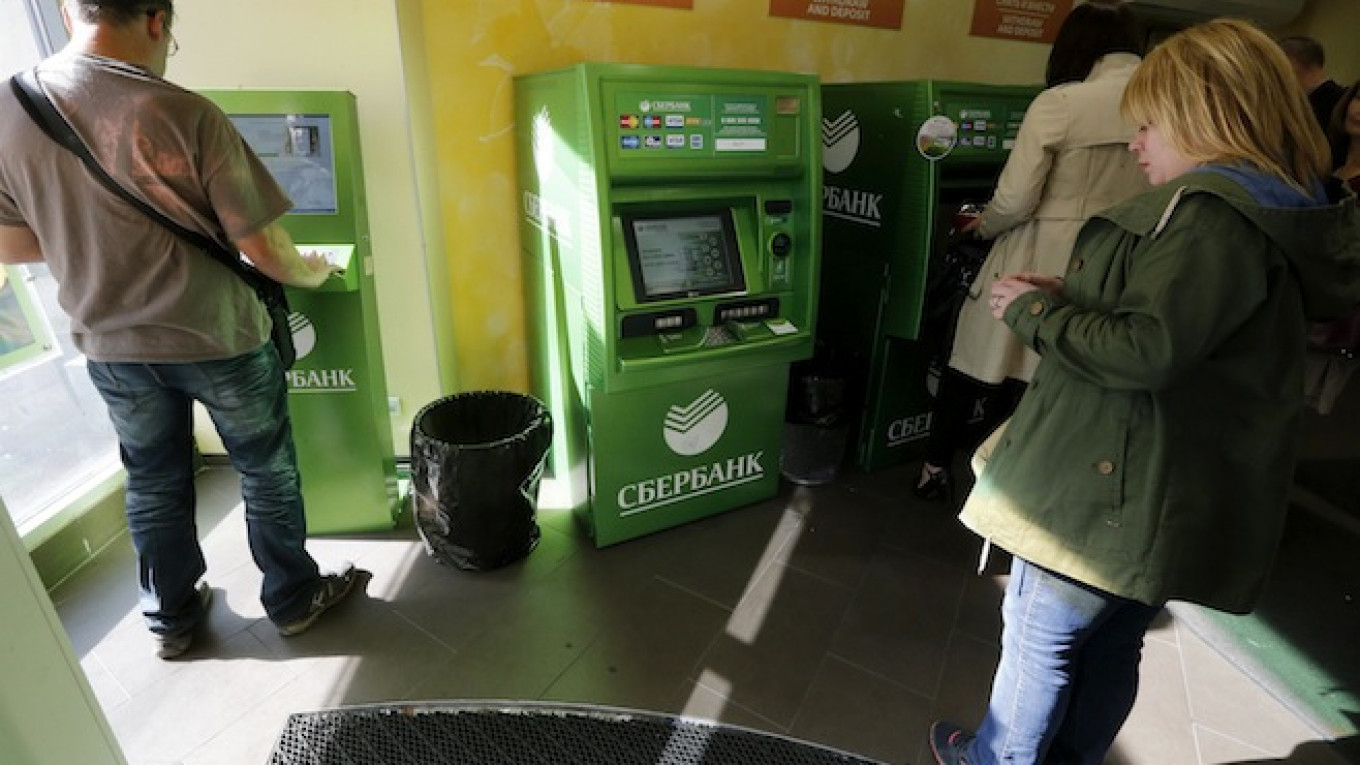Effectively cut off from Western capital markets by U.S. and EU sanctions, Russia's largest lender Sberbank is seeking financing from pension funds and insurance companies to bolster its strained capital base, a news report said Monday.
"We are interested in long-term financing — longer than a year," Vedomosti cited an unidentified Sberbank executive as saying.
The CEOs of insurance company RESO-Garantiya and private pension fund Gazfond told Vedomosti that they have observed a steady stream of proposals from state-run banks over recent weeks.
"[Major banks] are trying to compensate for a certain deficit in liquidity," Gazfond CEO Andrei Kokin told the newspaper.
Banks have other sources of financing at their disposal, but are likely drawn by the relatively lower rates granted to insurance companies and pension funds, said Sergei Ivanov, chairman of the board at leading insurer Sogaz.
Pension funds will not be interested in deposit rates of lower than 10 percent at Sberbank or 11 to 12 percent at large private banks, he added.
The European Union first slapped sanctions on Sberbank in late July, which barred the lender from raising debt with a maturity period of longer than 30 days on European capital markets.
The United States initially refrained from hitting Russia's largest lender, even while blacklisting several other state banks. But on Sept. 12, as Russia stood accused of continuing to supply military support to rebels in eastern Ukraine, the U.S. extended its sanctions to cover Sberbank as well.
Sberbank president German Gref said recently that the bank has had to make "colossal" efforts to reorient towards domestic sources of funding.
Sberbank declined to comment on Vedomosti's report.
A Message from The Moscow Times:
Dear readers,
We are facing unprecedented challenges. Russia's Prosecutor General's Office has designated The Moscow Times as an "undesirable" organization, criminalizing our work and putting our staff at risk of prosecution. This follows our earlier unjust labeling as a "foreign agent."
These actions are direct attempts to silence independent journalism in Russia. The authorities claim our work "discredits the decisions of the Russian leadership." We see things differently: we strive to provide accurate, unbiased reporting on Russia.
We, the journalists of The Moscow Times, refuse to be silenced. But to continue our work, we need your help.
Your support, no matter how small, makes a world of difference. If you can, please support us monthly starting from just $2. It's quick to set up, and every contribution makes a significant impact.
By supporting The Moscow Times, you're defending open, independent journalism in the face of repression. Thank you for standing with us.
Remind me later.






